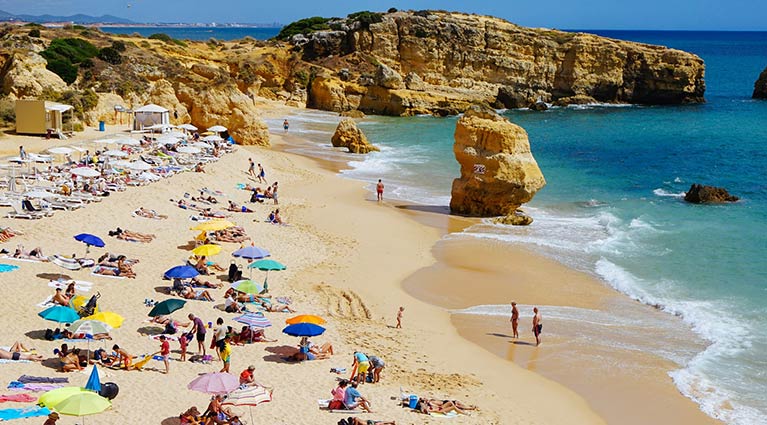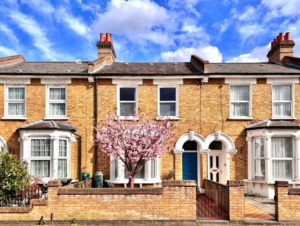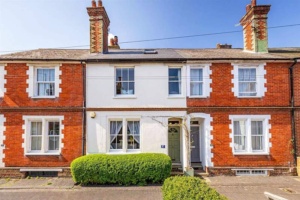Post-Brexit holiday homes: can you stay longer than 90 days in the EU?
Are you looking for a retreat in the sun you can head off to each year, but want to stay longer than just taking short visits to your holiday home?
Since Brexit, Brits now have to limit stays in the Schengen Area to 90 days out of every 180 day period. But there are ways to stay longer, legally, although visa rules vary from country to country.
Here’s how you can extend your stay in some of the most popular destinations in Europe, including France, Portugal, Spain, Greece and Italy.
France
British citizens planning to stay longer than three months at a time in France must apply for a Long Stay Visa – visa de long séjour – at the French Consulate in London (or the country where they are living). This allows you to stay in France for three to twelve months.
There are several types of long stay visas, however the main two are:
The VLS-TS: this visa is normally issued for one year and is renewable.
The VLS-T: this visa is issued for one year and is not renewable. These are generally for work or business purposes, to study or to join family members. The official French website for visa application highlights which visa is most appropriate.
To extend a stay for more than one year, British citizens must apply for a residence permit in France. This residence permit – carte de séjour – is generally valid for one year and is renewable up to five times. British citizens who have lived in France for five continuous years on a renewable carte de séjour can apply for permanent residency. A carte de séjour costs €270 and is available for the local prefecture.
Take a look at homes for sale in France
READ MORE: Buying and owning a home in France post-Brexit
Portugal
Along with the wonderful weather, beaches and golf courses, the Non-Habitual Resident (NHR) tax scheme has been a significant reason why Portugal saw a marked increase in foreign nationals, notably Brits, moving there over recent years.
The NHR initiative, introduced in 2009, allows anyone who has not been a resident in Portugal for the past five years to benefit from tax incentives on pension and rental income, capital gains on real estate, and non-Portuguese income – for 10 years.
Holders pay no tax on non-Portuguese sourced income, and only 20% income tax on income earned within Portugal. The NHR scheme can be used in conjunction with certain residency visas but must be applied for separately.
Portuguese Visas
Temporary Stay: for stays of up to a year, British citizens can apply to the Portuguese embassy in the UK, or their country of residence, for a Temporary Stay Visa. This usually takes a month to arrange and costs €75.
D7 Visa: This is known as the ‘retirement visa’ and is for people moving to Portugal full-time. Applicants must have a minimum monthly income of €600 and an accompanying spouse must earn €300, either from rental income, freelance work or pension payments. Applicants cannot work for a Portuguese company and must have an address in Portugal. As a rule, holders become tax residents in Portugal, enjoying NHR status for up to 10 years.
D2 Visa: Also known as The Immigrant Entrepreneur Visa. This allows holders to set up a business in Portugal or work on a freelance basis.
Golden Visa: Since 2012, Portugal’s Golden Visa offers residency to British citizens who spend a minimum of €250,000 to €500,000 on property, depending on the area of Portugal and type of property where they purchase. The process is lengthier than most, generally taking around six months.
To obtain a passport, Golden Visa holders must spend a minimum of seven days in Portugal each year. The Visa is renewable after the first year and then valid for two years. After five years, Golden Visa holders can apply for Portuguese citizenship.
As of 1st January 2022, the Portuguese government has ruled that property purchases in Lisbon, Porto and much of the Algarve will no longer qualify for the Golden Visa.
Costs (December 2021): a D7 Visa application costs an average of €2,000. A Golden Visa will cost around €5,325 per person, plus an annual renewal fee of €2,663 per person. All of these visas require evidence of a private health insurance policy. Once you are accepted for Portuguese residency you can access the Portuguese NHS (the SNS).
Take a look at homes for sale in Portugal
Spain
There are a number of visas which allow longer stays than 90 days in every 180 in Spain. These longer-term visas are also referred to as a D Visa. The two most popular are the Non-Lucrative Visa and the Golden Visa.
The Non-Lucrative Visa allows stays of over three months for anyone not taking up employment in Spain and is ideal for retirees. You must demonstrate that you have held a bank balance of €34,000 (or the sterling equivalent) for at least six months and have valid private healthcare cover.
This visa lasts initially for one year and is renewable for further two-year periods with holders able to apply for permanent residency after five years. The application process is generally straightforward and takes between two and three months.
The Golden Visa is available to investors who have spent at least €500,000 on property. It costs around €5,000 for a family application and lasts for two years at a time. Once all the documentation is filed, it’s normally approved within one month.
The Gold Visa provides holders and their family (spouse, children under 18 and dependent parents) with residency permits to live in Spain. It is not compulsory to live in Spain to renew this visa, but if you do live there, you are eligible for permanent residency after five years and for Spanish citizenship after 10 years.
Take a look at homes for sale in Spain
READ MORE: Buying and owning a home in Spain post-Brexit
Greece
There’s also a Golden Visa Scheme in Greece. This provides five-year residency and requires a minimum property purchase of €500,000.
As a Golden Visa Scheme with one of the lowest entry price points in the EU, it has proved popular, especially when you add in the flat rate of 7% income tax that is charged on foreign pensions, with tax residency transferred to Greece. To qualify for this tax level, you must live in Greece for more than half of the year.
The Greek Golden Visa is valid for five years. It costs around €2,000 per person, with approval generally within two months. To renew it, there is no compulsion to live in Greece, although you must be able to prove you still own property. After seven years of continuous residency, Golden Visa holders can apply for Greek citizenship.
Take a look at homes for sale in Greece
Italy
In 2017, Italy introduced a citizenship by investment programme called The Investor Visa for Italy. It is valid for two years and renewable for a further three years, allowing anyone who invests between €250,000 to €500,000 in approved national projects to obtain Italian citizenship after 10 years. This does not currently include property purchases. The process takes three- to-four months.
Italy will consider applications for permanent residency to anyone who can demonstrate an annual income of €100,000.
Take a look at homes for sale in Italy
READ MORE: How the post-Brexit Schengen Area 90/180 day rule works
The header image for this article is of Praia de São Rafael, Albufeira, in Portugal, and is provided courtesy of Unsplash
Details are correct at the time of publication, 22 February 2022. Check with local government websites for the most up to date legislation.



